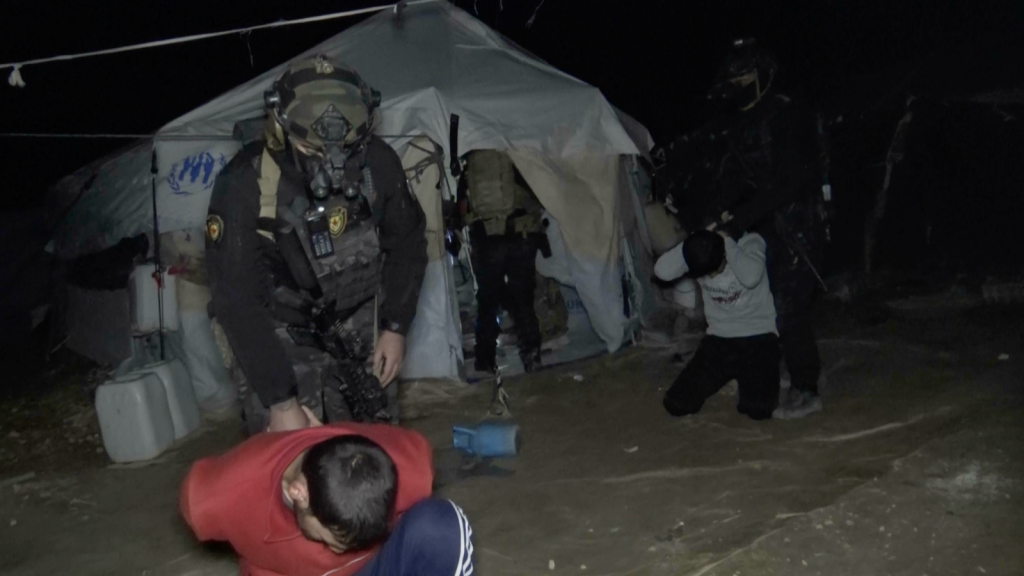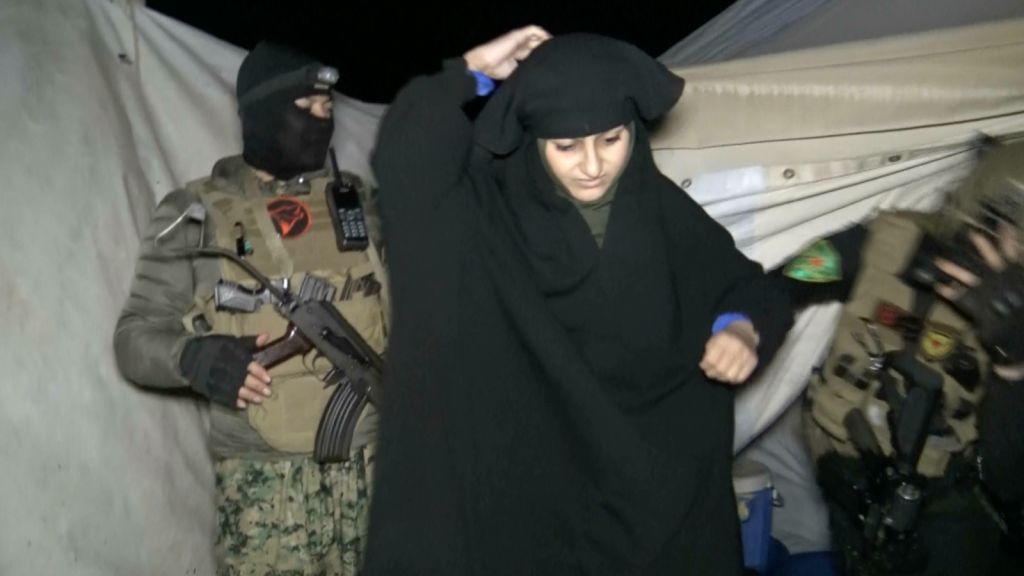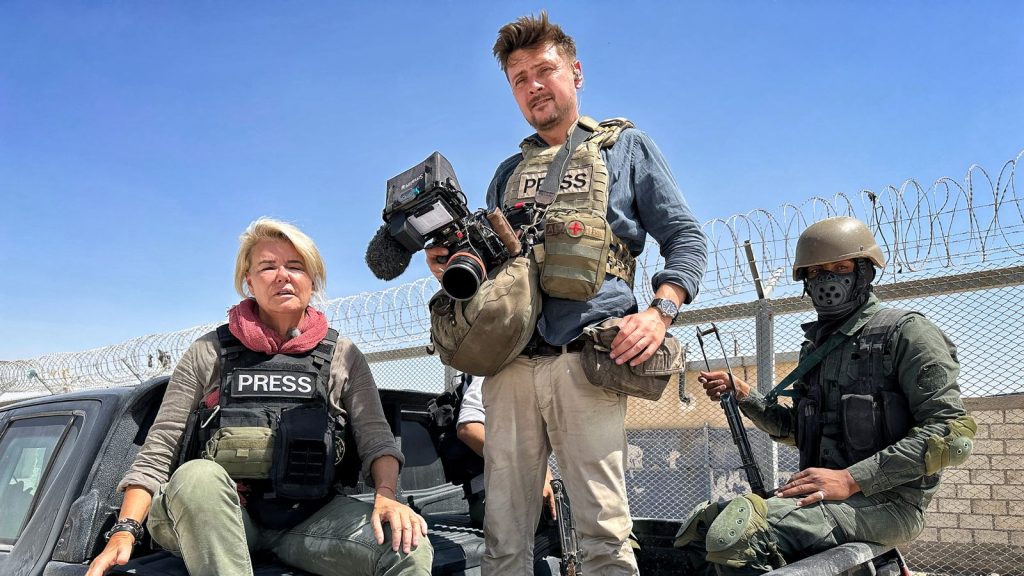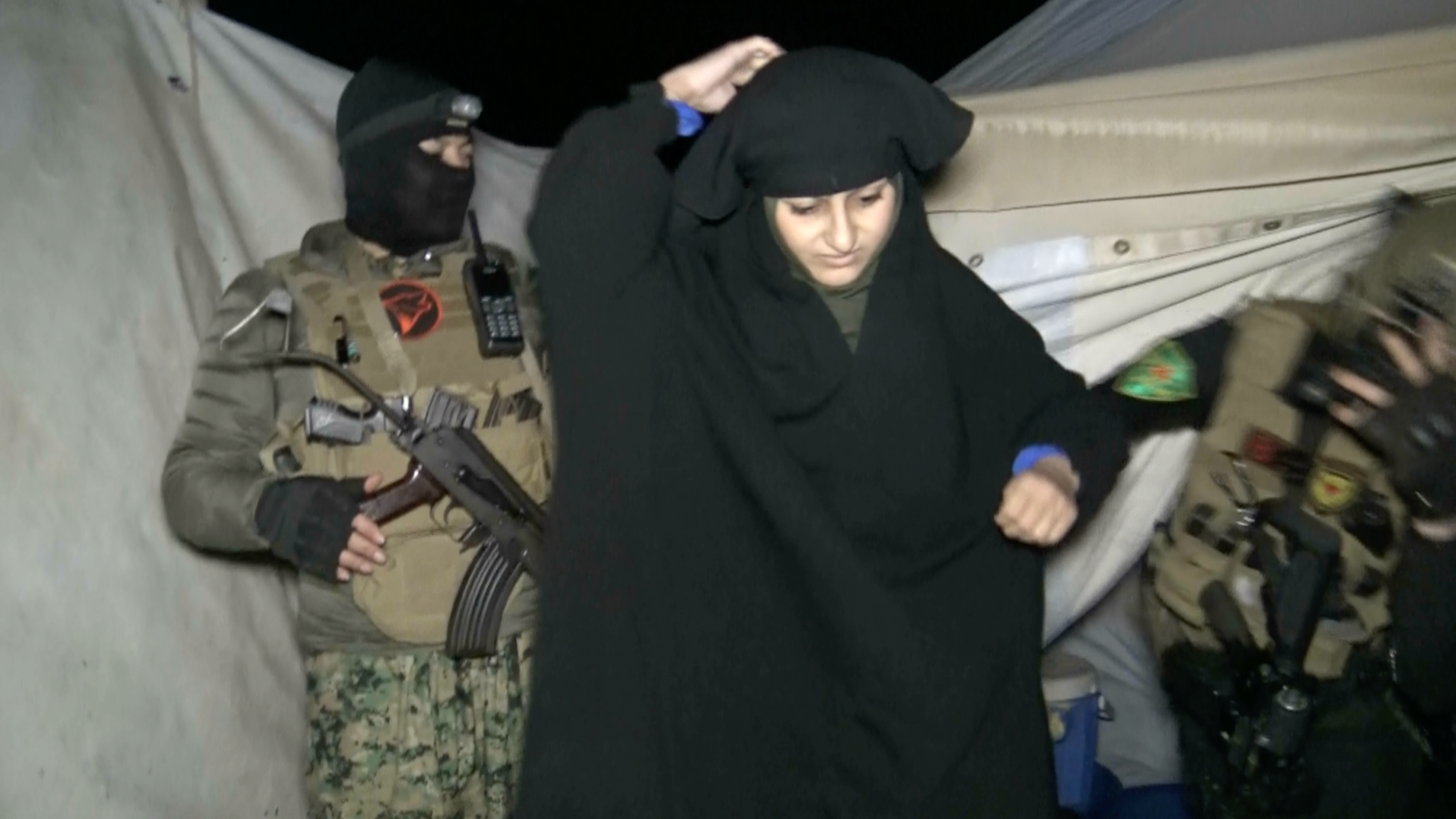Forced into slavery by IS aged just 14, Kovan – a young Yazidi woman – suffered rape and brutality on a daily basis. Now, finally free and back home with her remaining family she wants justice for the horrors she and so many others have suffered.
It is the dead of night in north-east Syria and armed soldiers are hunting Islamic State (IS) extremists, five years after declaring that the terror group was crushed.
The mainly Kurdish soldiers who make up the Syrian Democratic Forces (SDF) run in and out of tents in the sprawling Al-Hol refugee camp which sits near the Syria-Iraq border.
Buried beneath this tented city, they’ve found a cache of weapons and explosives in tunnels, including AK47s, hand grenades and rocket propelled grenades. They’ve also found IS flags and the coins they used.
It’s quiet and dark. The soldiers wear body armour and night-vision goggles. Their boots crunch on stones in the dusty alleyways between the tents. Al-Hol’s residents are sleeping and as the troops burst into tents they find children and women under blankets.

The sudden presence of these soldiers, clad in helmets, holding guns and with ammunition strapped to them, startles the occupants. Some of the children start crying.
The surprise is deliberate. IS cells operating in the camp still have Yazidi captives – women and children they kidnapped a decade ago. In the past, extremists have gone to great lengths to hide their slaves or sabayas.
Wary of deceit, the soldiers are curt. They ask the women to lift their veils because they know many Yazidis are too scared to identify themselves for fear of IS retribution. Others taken as children have spent so many years with the extremists, they no longer remember their old lives.
Alone in a tent with two small children, a young woman identifies herself as Yazidi. Her name is Kovan, she says, with a look of fear on her face. If the soldiers leave her in the camp, she will face a violent beating or worse from IS loyalists. But much to Kovan’s relief, the soldiers make a quick decision to take her and the little boy, aged six, and the little girl, aged four.
They join several other women and their children who the troops also suspect of being Yazidis. Kovan gathers up some clothes for the children and dons a burqa. She doesn’t want to be spotted by anyone in case she ends up back in the camp.
The group is bundled into a military vehicle and taken out of the camp’s barricaded perimeter. They will all be investigated to determine exactly who they are. The journey out is tense. Nobody speaks. These women’s lives depend on being able to prove who they are, but without any formal documents it will be an agonising process.

The Islamic State rampaged through Iraq and Syria in 2014 capturing swathes of territory and setting up a Caliphate. They attacked Sinjar in northern Iraq, the historic home to the world’s oldest and largest Yazidi community.
The Yazidis are an ancient Kurdish-speaking ethnic and religious group, which integrates elements of Judaism, Christianity and Islam. IS view the Yazidis as ‘godless’ and set about systematically murdering, torturing and raping them.
During this campaign of violence around 400,000 Yazidis fled their homes. The extremists slaughtered thousands of men and older women, burying their bodies in mass graves. They also took more than 6,000 women and children captive to sell as slaves.

My camera team was in north Syria and Iraq through much of the Islamic State’s reign. We reported alongside the 80-strong international coalition formed to crush the terror group and reclaim territory.
I met Yazidi women who had escaped and heard tales of the abuse they’d suffered at the hands of IS fighters. Many had babies born from the rape who were rejected by their communities as “IS babies”. Some told me the terror group had sexually abused their young children, while others were given contraception to ensure they did not conceive.
The retaking of Baghouz in eastern Syria by US-led coalition forces in March 2019, marked the territorial defeat of IS in Syria. Thousands of male extremists were taken to detention centres run by the SDF, where they still await trial. The IS families – and their secret Yazidi slaves – are still housed in two sprawling camps in north-east Syria, which the authorities describe as a “ticking time bomb”.
Meanwhile, nearly 3,000 Yazidi women are estimated to still be missing, believed held captive.
